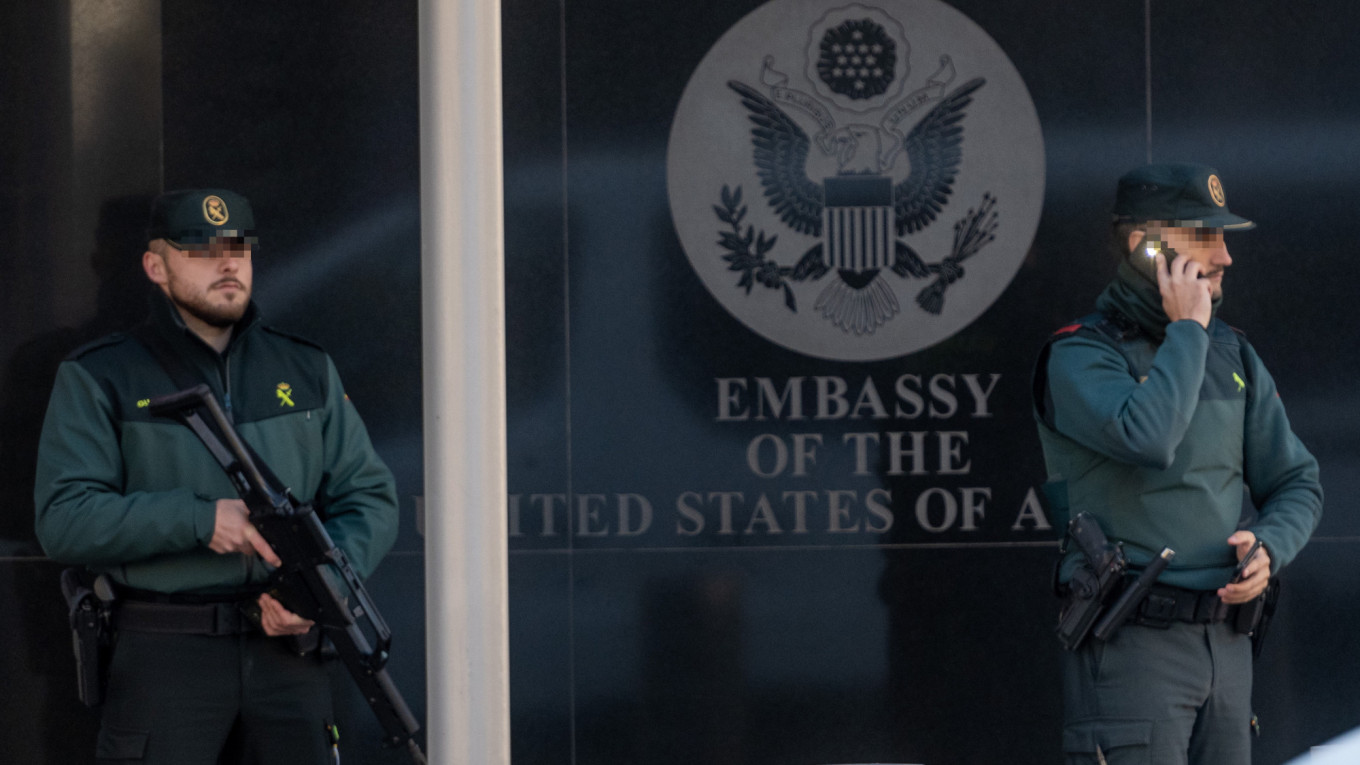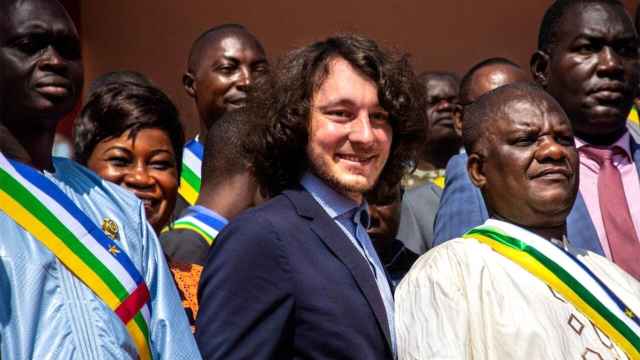Russia’s GRU military intelligence agency is suspected of directing associates of a St. Petersburg-based white supremacist militant group to carry out a recent letter bomb campaign in Spain, The New York Times reported Sunday, citing unnamed U.S. officials.
Six letter bombs were sent to high-profile government, military and diplomatic targets in Spain in late November and early December, prompting authorities to step up security and re-commit support for Ukraine in its war against invading Russian forces.
According to the NYT, Spanish investigators who worked with U.S. and U.K. counterparts believe the GRU’s Moscow-based 161st Special Purpose Specialist Training Center used the Russian Imperial Movement, a radical group with members and associates across Europe, as a proxy in the campaign.
The United States branded the Russian Imperial Movement, which operates military-style training centers in St. Petersburg, as a terrorist group in 2020. The designation marked the first time a white supremacist organization was labeled a terrorist group.
“The apparent aim of the campaign was to signal that Russia and its proxies could carry out terrorist strikes across Europe,” the newspaper wrote, citing unnamed U.S. officials.
“The ability to use the Russian Imperial Movement as a sometime proxy force is useful to Russian intelligence, particularly because that makes it more difficult for rival countries to attribute actions to the Russian government,” it added.
While Moscow is not believed to be ready to carry out widespread covert attacks or sabotage in Europe, U.S. officials warn that this could change if Russia continues to suffer major setbacks in Ukraine.
The Kremlin’s level of involvement in the letter bomb campaign is unclear.
Though the Russian Imperial Movement has criticized the Kremlin’s war effort in Ukraine and accused President Vladimir Putin of corruption, the NYT said the GRU has still been able to influence its operations due to their shared anti-Western views.
U.S. intelligence and counterterrorism officials have stepped up scrutiny of the Russian Imperial Movement, flagging suspected leaders and members on updated terrorist watch lists.
A Message from The Moscow Times:
Dear readers,
We are facing unprecedented challenges. Russia's Prosecutor General's Office has designated The Moscow Times as an "undesirable" organization, criminalizing our work and putting our staff at risk of prosecution. This follows our earlier unjust labeling as a "foreign agent."
These actions are direct attempts to silence independent journalism in Russia. The authorities claim our work "discredits the decisions of the Russian leadership." We see things differently: we strive to provide accurate, unbiased reporting on Russia.
We, the journalists of The Moscow Times, refuse to be silenced. But to continue our work, we need your help.
Your support, no matter how small, makes a world of difference. If you can, please support us monthly starting from just $2. It's quick to set up, and every contribution makes a significant impact.
By supporting The Moscow Times, you're defending open, independent journalism in the face of repression. Thank you for standing with us.
Remind me later.






